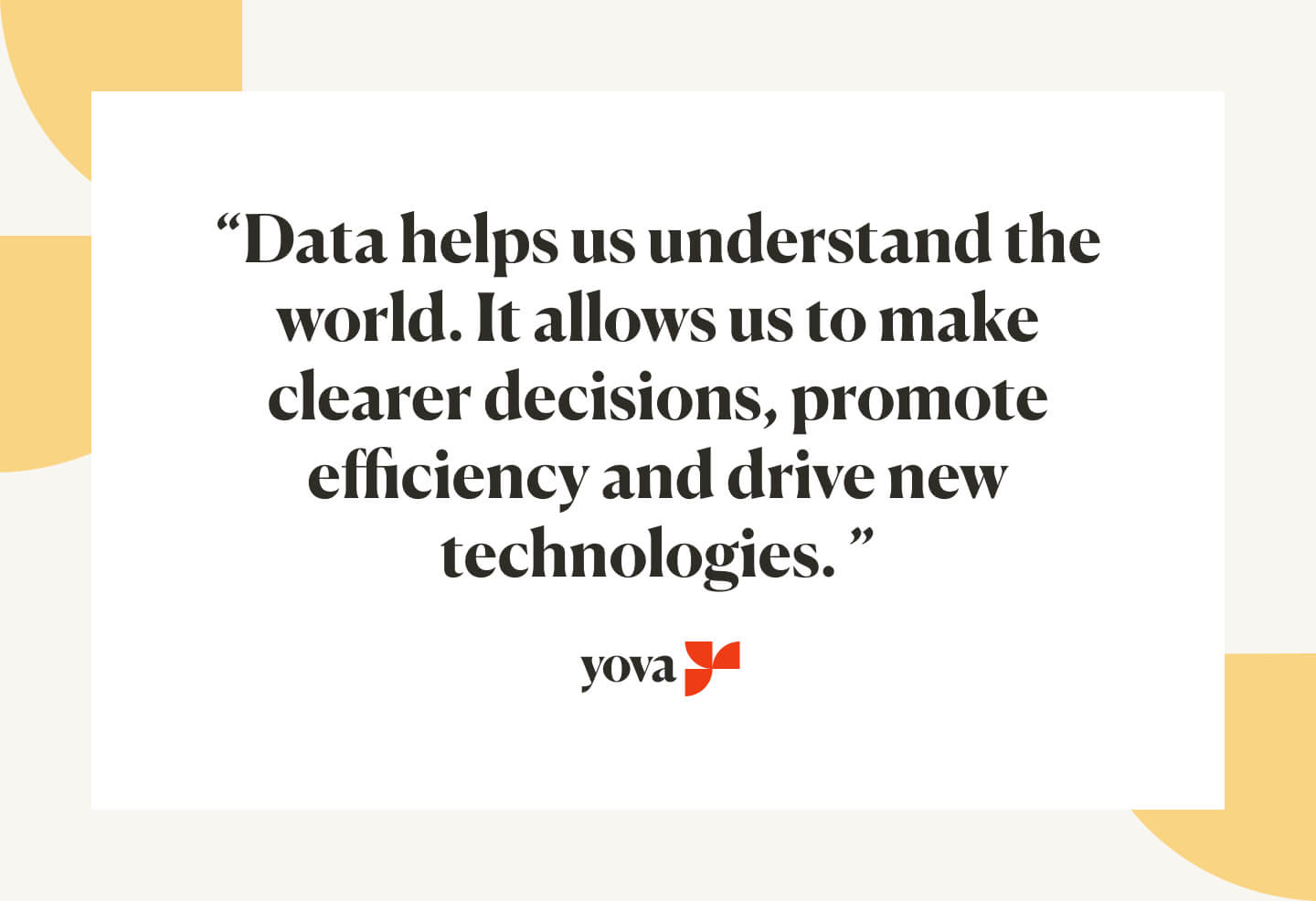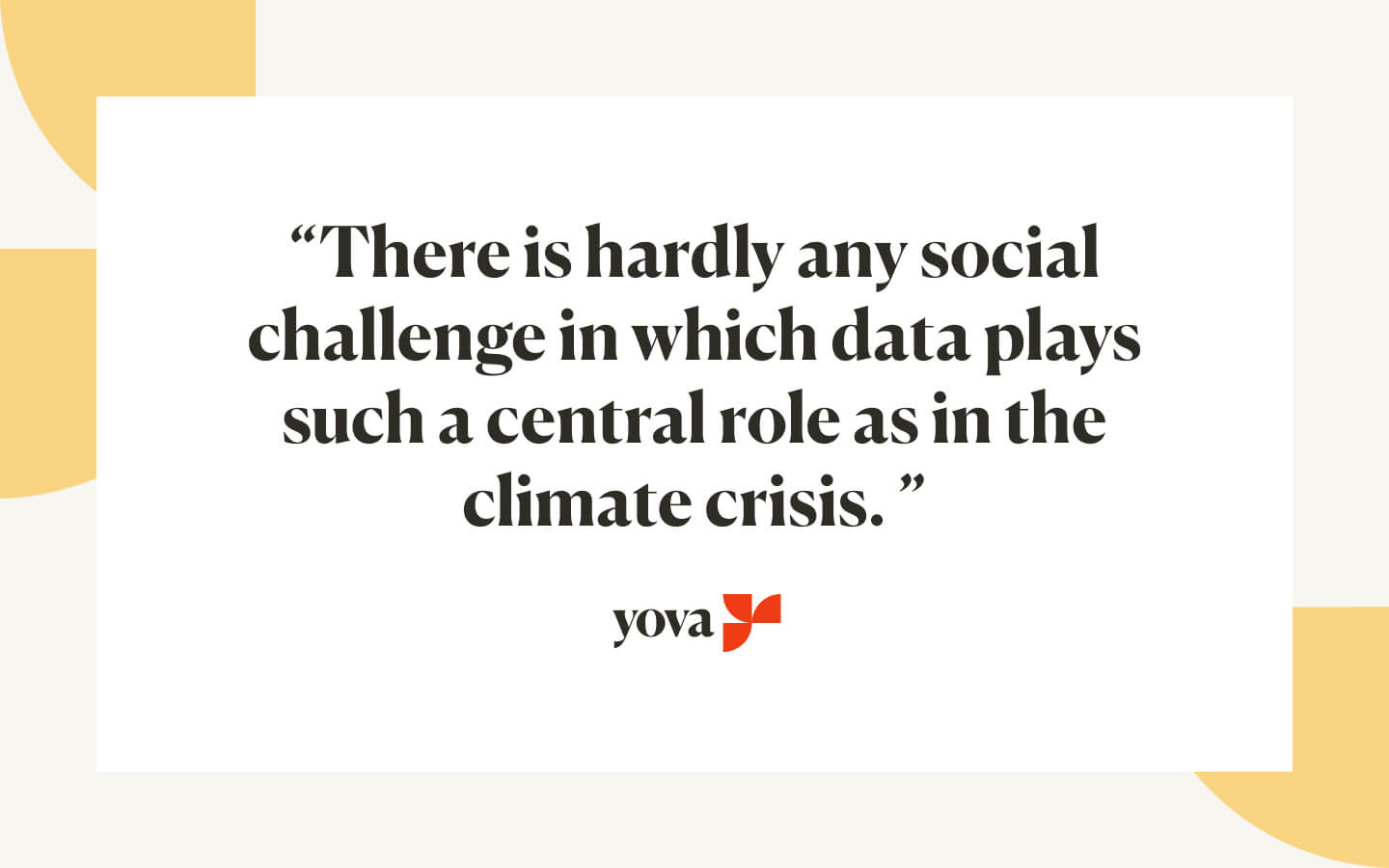
Nikki Böhler has many talents: in the past, she has worked in a wide variety of roles in an effort to actively encourage more participation, equality, and sustainability in Switzerland. While studying economics at the University of St. Gallen, she founded the Social Business Club to raise students’ social awareness. Nikki also started a mentoring programme for cooperative start-ups called CoopStarter and co-launched the online hackathon and incubator against Covid-19 VersusVirus.
For three years now, the young woman has been running Opendata.ch; a non-profit organisation that aims to promote data transparency. You may have already come across Nikki or her fellow campaigners in the “Data Café”: as part of an awareness campaign, Opendata.ch travels through Switzerland offering coffee for the price of personal data. The aim is to encourage people to think about the value and role of data.
Data also plays a big role in the evaluation of companies in the Inyova universe. That’s why we asked Nikki Böhler a few questions about data transparency and climate data.
Nikki, what exactly does Opendata.ch do?
We work to strengthen society’s participation in digitalisation. Open resources play an important role in this, but so does an informed and engaged society. We are convinced that digitalisation must be open, collaborative, and inclusive to ensure that as many people as possible can benefit from it. With our activities, we cover the whole cycle of digital participation: from awareness campaigns on data, hackathons in all kinds of sectors, to funding programmes for open source projects.

Quote from Nikki Böhler
What are the pros and cons of collecting and using data?
Data helps us understand the world. It allows us to make clearer decisions, promote efficiency, and drive new technologies. At the same time, if used irresponsibly, it can compromise our privacy and lead to social injustices. To understand this discrepancy, one needs to know the difference between personal data and data that does not need to be protected.
Personal data relates directly to individuals. For example, my name, birthday, or investment preferences are personal data. This kind of data reveals a lot about us, allows others to influence us, and can be misused in various ways. Control over our personal data ensures our digital self-determination. This must be protected.
Data that does not require protection, on the other hand, should be made publicly available, as it forms an important foundation for transparency, participation, and innovation. Data that is not worth protecting neither violates the protection of individuals nor poses a threat to national security. Today, open data is largely made available by government agencies. Examples are the current Covid-19 case numbers, federal assembly minutes with the decisions of parliamentarians, or the distribution of wind turbines in Switzerland.
Where does data come from and is it traded?
New technologies allow for increasing amounts of data to be collected. Every gust of wind, every online search, every political election, every transaction generates data. Much of it never sees the light of day. Most data is analysed or traded in secret. What exactly happens behind the scenes is very difficult to ascertain.
What is clear is that many companies sell and buy data for personalised advertising, trade data with each other to better understand people or issues, and that data is traded on public exchanges. A shocking example was brought to light by Tactical Tech and the artist Joana Moll in 2017: they bought one million online dating profiles – including names, pictures and personal preferences – for EUR 136 on the data exchange USDate.
What will change for us in the future when it comes to data?
In general, we are committed to the general population becoming more aware of the role, opportunities, and dangers of data. This way, more people will get involved in the social and political discourse around data and together we can decide and define our digital future. Personally, I hope that personal data will be better protected for the sake of our privacy and that non-personal government data will be made accessible by default.
In terms of climate data, digitalisation is opening up more and more new sources of data. Weather stations, mobile phones, traffic measurements, and social media can be used to understand climate developments in a more informed way. Unfortunately, a lot of relevant climate data is not publicly available, not published in accessible formats, poorly described, or not up-to-date. We need to explore this potential.

Quote from Nikki Böhler
Why are climate data in particular so exciting?
There is hardly any social challenge in which data plays such a central role as in the climate crisis. The way we collect, share, publish, and use climate data is critical to successfully addressing climate change. Through data analysis, we can understand the climate crisis, convince people and politicians, hold individuals and organisations accountable, and take action, measure, and optimise.
That’s why we brought together two climate data experts at our “Why Climate Data Matters” event on 15 March to discuss how data can help us address climate change, what the limitations are, and what contributions we can make every day.
Are you interested in learning more about climate data? Then watch the recording of the Opendata.ch event here or read more about how we rate the companies in the Inyova universe here.



